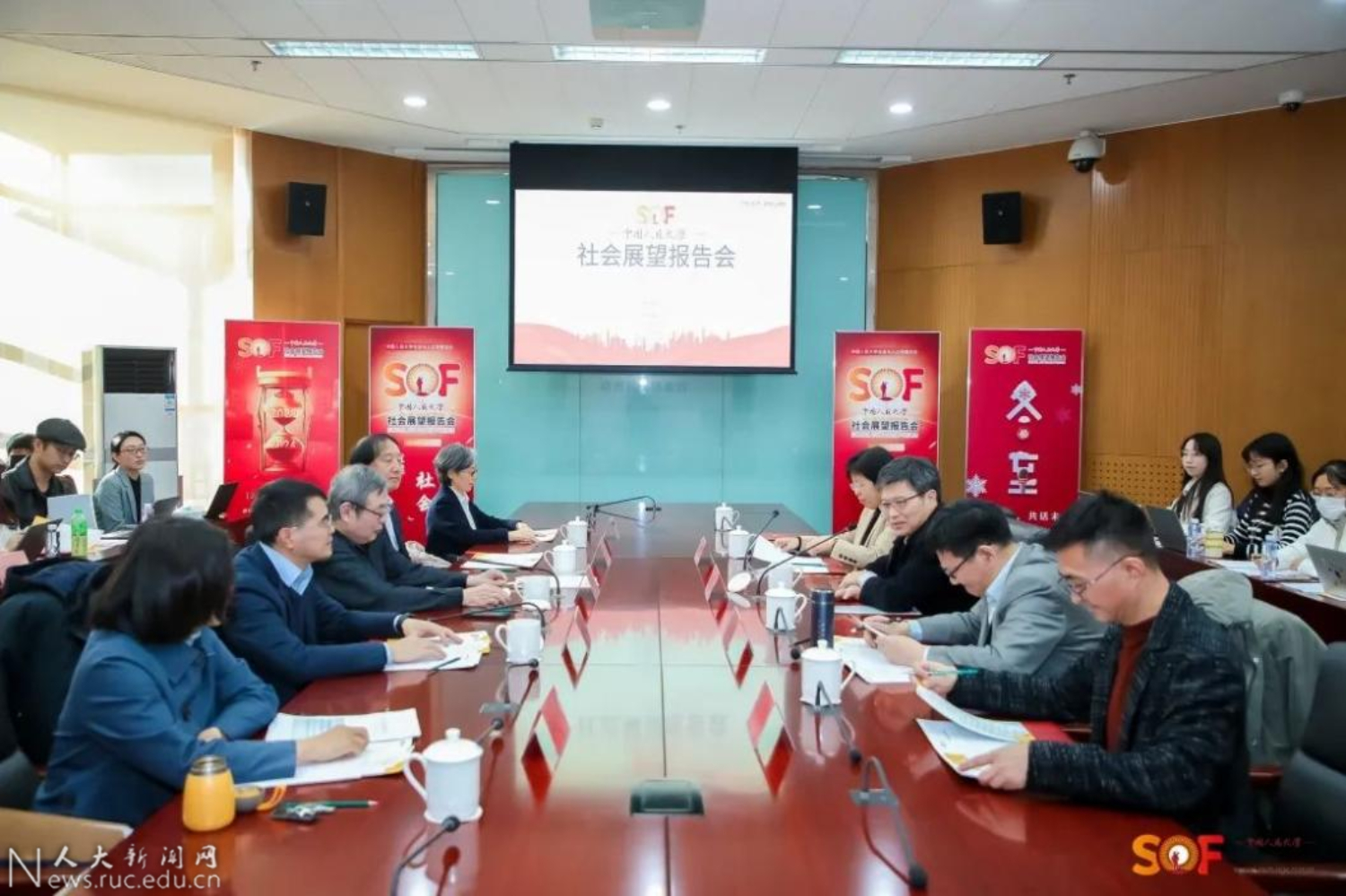On December 22nd, the first Social Outlook Forum of Renmin University of China (RUC), hosted by the School of Sociology and Population Studies of RUC, took place.
RUC’s President Lin Shangli attended and delivered a speech. National-level Professor Li Lulu of RUC, Professor Du Peng, Director of the Institute of Gerontology of School of Sociology and Population Studies at RUC, Associate Dean Wu Yuxiao, Professor of the School of Social and Behavioral Sciences at Nanjing University, Researcher Li Chunling from the Institute of Sociology at the Chinese Academy of Social Sciences, Professor Wei Kaiqiong, Dean of the Women’s Development School at China Women’s University, Associate Dean Wang Tianfu, Professor of the School of Social Sciences at Tsinghua University, and Deputy Director Wang Weidong of the National Survey Research Center of RUC attended the report meeting. Vice Dean Song Yueping of the School of Sociology and Population Studies at RUC chaired the event.

President Lin Shangli characterized the meeting as a forum for academic discourse and strategic planning on social development. He stressed the need for collective analysis and proactive measures to further China’s modernization and socio-economic growth, aiming to make it a model of academic excellence and innovative progress.
Professor Li Lulu’s report highlighted the pivotal role of social development in China's modernization, using 2010-2021 data to reveal major shifts in living standards and ideologies. Key trends include consistent fertility rates, narrowing urban-rural income disparities, evolving values, and growing social trust and contentment, underscoring the effectiveness of China’s social governance and modernization strategies.
Professor Du Peng emphasized the significance of digitalization and population aging, noting the rise in internet use among China’s elderly and related challenges like the digital divide. He advocated for a people-centered strategy, better governance, age-appropriate online services, and using digital technology to improve elderly services for a more inclusive digital society.
Professor Wu Yuxiao’s research, using 2003-2021 data, analyzed China’s urban middle class and its impact on economic and social governance. He emphasized monitoring technology’s effects on social stratification and stressed maintaining public optimism for future socio-economic development.
Li Chunling noted the unique values and challenges faced by China's youth amid socio-economic and generational shifts. He highlighted the need for understanding and strategic support to help them navigate these changes and opportunities.
Professor Wei Kaiqiong noted evolving Chinese views on family and gender roles from 2012 to 2022, showing changing perspectives on marriage and childbearing, a move towards more balanced gender roles in household tasks, and increased demand for government-supported preschool childcare. He also highlighted the work-family conflicts experienced by both genders, particularly by women.
Professor Wang Tianfu emphasized adapting to the digital revolution’s impact on society and demographics with an open mindset, continuous learning, and focus on well-being. He also acknowledged the China General Social Survey’s role in understanding and addressing social transformation.
This report meeting, guided by data and focused on societal issues, aims to analyze and forecast trends in Chinese society. It delves into Chinese practices and challenges, articulating the nation's journey and narratives, thereby enhancing the ongoing dissemination of academic insights and RUC’s perspectives.


